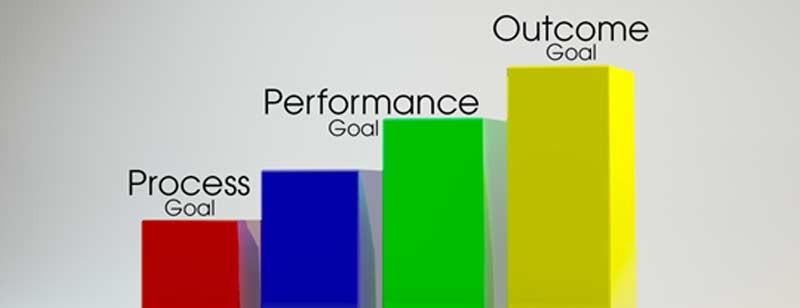Blog
The Importance of Setting Goals
Posted by JCH Psychology | Blog |
December 09, 2015
In basic terms, goals are something you want to achieve. They help keep you motivated in sport and performance settings because they help to outline the path to follow or the road to achievement.

The problem is not in getting athletes to identify their goals instead it is in getting them to set the right type of goals. It is best to set a combination of goals that:
- give direction and enhance motivation
- help the athlete to learn how to stick to and achieve their goals
- focus on the short-term (6-12 weeks) as well as the bigger picture (6-12 months)
- reflect their current ability or skill level but also challenge and test them to improve along the way
- outline the specific strategies designed to help them surpass or achieve the goal
Three Types of Goals
- Outcome Goals: Focus on the competitive result of an event (e.g., winning the race, winning a medal, scoring more points than an opponent). They often facilitate your long-term objectives and emphasise the end result
- Performance goals: Focus on achieving standards or performance objectives independently of other competitors or results. They usually form the basis for comparisons with one’s own previous best performance (i.e., they are self-referenced rather than compare you to others)
- Process goals: Focus on the actions or skills the athlete must engage in during performance to execute or perform well (i.e., how we do things). They often emphasise the performance process (e.g., technique, movement, kinesthetic feelings) as well as break the performance down into smaller and more manageable steps.
Common Mistakes when Setting Goals
- setting the wrong types of goals: athletes naturally want to set outcome goals (only) that focus on results and standards of achievement.
- setting goals that are too difficult or unrealistic: these athletes are at risk of interpreting unsuccessful achievement of a goal as a failure and may lose interest or decreased motivation toward the goal in future.
- setting goals that are not challenging enough: these athletes can initially experience a boost in confidence with each new goal achievement but can equally be at risk of losing interest or motivation because goal achievement becomes too easy.
Tips for Setting Effective Goals
- Remember to be flexible in case something pops up that prevents you from achieving your goal.
- It can be helpful to get someone to look at your goals and give you feedback for example a parent, sibling, coach, etc.
- Make sure you record your goals as well as review them regularly so you know if you are on the right track.
Want to know more?
If you would like to learn more about setting effective goals, please contact one of our performance psychologists to arrange an individual consult. (This email address is being protected from spambots. You need JavaScript enabled to view it.)
